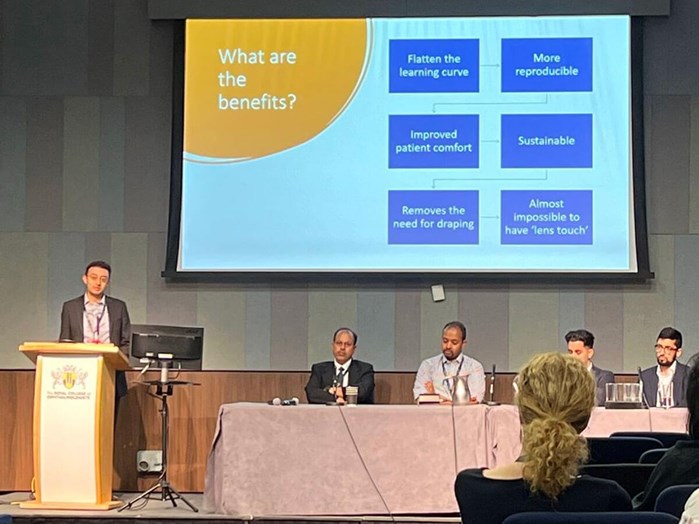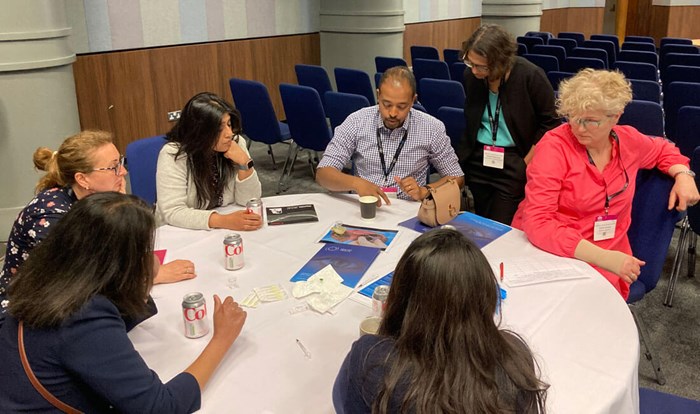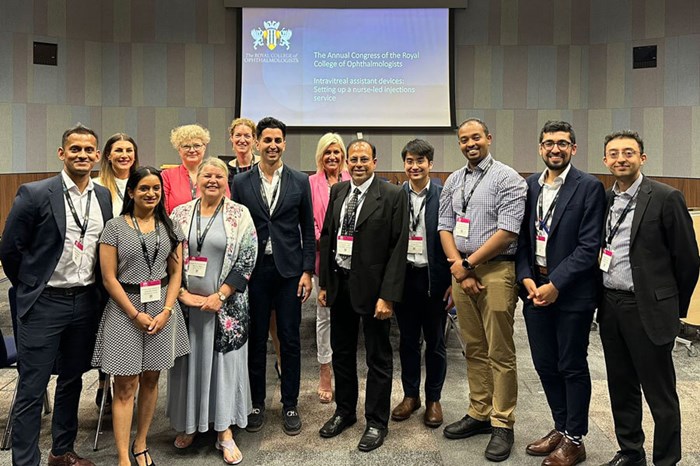8 Centenary Square
Birmingham
B1 2EA
UK
A team led by Mr Nimish Shah, Consultant Ophthalmologist at the Great Western Hospital (GWH) in Swindon, ran the first practical intravitreal injection skills course at the College Congress in May this year. The session provided an overview of the services currently offered at the GWH and how their use of Precivia, an intravitreal injection assistant device manufactured by FCI, has improved the efficiency of the service they deliver with a higher number of injections whilst maintaining a low number of complications – the 5-year safety data from Nurse IVT service at GWH, Swindon has been published in European Journal of Ophthalmology (PMID: 34791908).
The course faculty consisted of Mr Nimish Shah and Mr Hani Hasan, consultant ophthalmologists at the GWH, along with Dr Sunil Mamtora, Dr Panayiotis Maghsoudlou and Dr Ibrar Ahmed, who are specialty trainee at the Severn Deanery.
The first half of session included a presentation by the team and the second half included a wet lab training session. This aspect of the session was enjoyed most by the delegates as it provided a hands-on opportunity to learn how to deliver an intravitreal injection using the Precivia device, including preparing the patient, identifying whether there are any contraindications to using the device, and injecting balanced salt solution (BSS) into a model eye that had been prepared in advance.

Vincent Ng, a medical student who attended the session, commented: ‘This was a really enjoyable session and I learned a lot about intravitreal injections. I want to become an ophthalmologist so having the opportunity to learn how to inject anti-VEGF medications before I start has been an amazing opportunity, thanks for organising!’
Mr Nimish Shah commented: "There is an increasing trend of non-medical eyecare professionals, particularly nurses, performing the majority of intravitreal injections in the hospital eye service. We delivered this course to provide training to those who are interested in developing professionally with new skills but also to train colleagues from across the country in the way that we do things in Swindon, which has been shown to be efficient and safe with a high standard of patient care."

Dr Sunil Mamtora, National Medical Directors Clinical Fellow at the Royal College of Ophthalmologists who spoke about future trends for intravitreal injections in the UK, commented: "There is an unmet need in offering high-quality training to non-medical eyecare professionals in how to administer intravitreal injections. It is clear that the ophthalmic workforce is becoming more diverse, particularly with the introduction of physician associates (PAs) from November this year. We hope to see many more non-medical eyecare professionals at college congress next year after the introduction of associate membership status by the Royal College of Ophthalmologists. This course has been a great opportunity to share knowledge, skills and experience with our colleagues."
The team looks forward to running the session again in Belfast next year so make sure you don’t miss out!
None of the authors nor the faculty have any financial interest in any products described or demonstrated.




